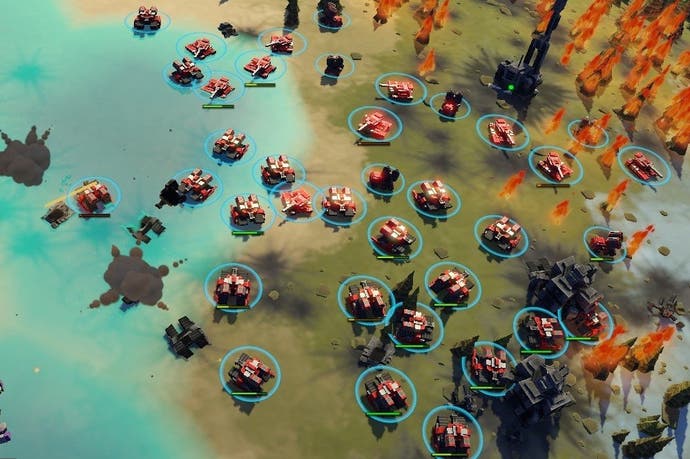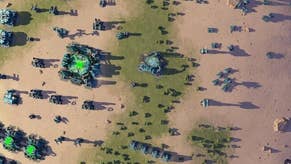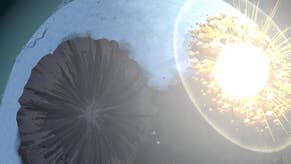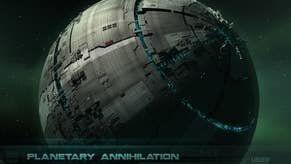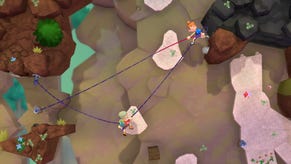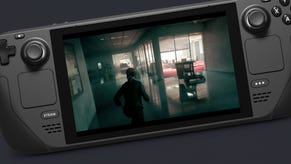Daunted by Planetary Annihilation? The Galactic War campaign is an ideal introduction
Your journey to hitting someone with a moon starts here.
Planetary Annihilation is a game about being a massive robot, but it's really a game about being a massive jerk.
This was a problem for me when I first played the Early Access build. It's not that I wasn't willing to be a massive jerk, or that, heaven knows, I hadn't spent my entire life in preparation for that specific role. It was more that everyone else in this galaxy-spanning real-time strategy game was so much more effective when it came to being a massive jerk than I was. I was a low-level jerk in a universe of master jerks - a universe perfectly crafted for strip-mining, multi-front harassment and the crushing of small nation states.
To put it another way, the problem I faced with the spiritual successor to the Total Annihilation and Supreme Commander series was that everyone who'd ever been seriously good at those games appeared to have turned up at once. When multiplayer was the only real option outside of AI skirmishes, that meant less talented players like me were going to spend a great deal of time being steamrollered. Planetary Annihilation is one of those RTS games with lots and lots of units. That's a huge part of the appeal. At least I'd be able to see them nice and clearly as they all rumbled over my smoking corpse.
Galactic War mode, which has recently been added, changes a lot of this. It's the rough draft of a single-player campaign, I think, which is already good news. It's also - over the short-term goes, at least - a lot more enjoyable than I ever thought the rough draft of a single-player RTS campaign could be. Taking the likes of FTL as a major influence, Galactic War uses basic roguelike principles to achieve something very mysterious. Through permadeath and procedural escalation, it's lowering the mental cost of entry to one of the most tantalising strategy game playsets in years. Hardcore annihilators will probably be unimpressed - but wannabe annihilators may be able to get that crucial first foot on the ladder.
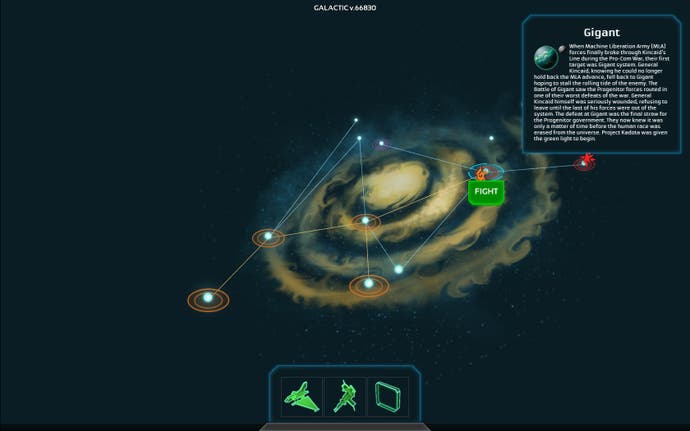
It's pleasingly simple stuff, too. Each campaign drops you into a freshly scrambled galactic map and sees you moving from one star system to the next, defeating AI commanders as you trundle across the cosmos, eyes bright with villainy. Crucially, you'll start off with your commander abilities pretty limited: the daunting list of units you can build in a single game of Planetary Annihilation is no longer a problem for beginners, because initially you won't be able to build very much at all.
Instead, you'll have to make do with what you have and - by making do - learn how to use it properly. I love Planetary Annihilation's flame tanks, for example, partly because they're flame tanks, and partly because they look like the Nolan-era Batmobile. Thanks to Galactic War I now understand how to use them, too: they're powerful, but they need to get in close to their targets to do any damage - and they take a while to build. Pretty obvious stuff, perhaps, but it's nice to have a working knowledge of it underlined by a few sweet victories. Next, I should probably find out what these flame tanks are actually called.
Each commander you defeat will provide you with new tech, which opens up your options a little. But it doesn't open them up too much, as you'll only ever have room for a limited load-out of techs as you tear up the galaxy. Occasionally, you beat a commander who grants you an entirely new load-out set-up for the next time you start over, which feels a bit like the ship designs you unlock in FTL. Speaking of FTL, it's worth restating that if you die in Galactic War, you'll scrub the whole campaign: permadeath, please try again.
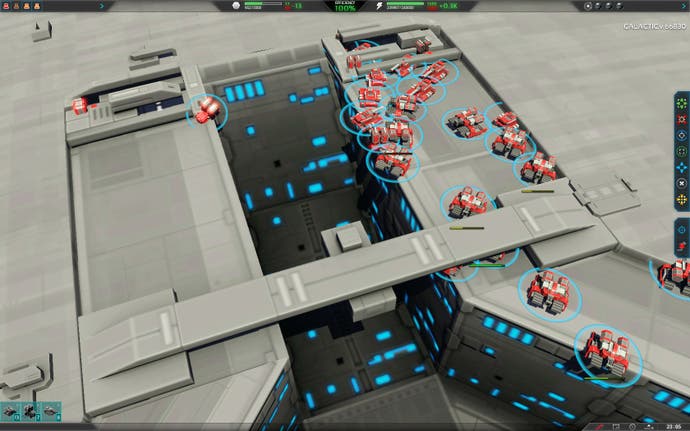
In many ways, this is all a brilliant fit for a game as dazzling and complex as Planetary Annihilation can be. For your first few battles, you get to ease into megalomania slowly, as if you're lowering yourself into an evil bubble bath. You build a simple base, you construct simple defences for it, and you put together a relatively simple army as you hunt your rival commander across the game's spherical planetoid maps. You don't need to master the complexities of a scramble up the tech tiers for quite a while: instead each round of Galactic War begins as a stompy play on hide-and-seek. It's Fog of War: The Game, and as you send out scouts, you learn to use a planet's always-visible resource nodes to identify likely spots where your foe could be lurking. Then you hound them and smash up their toys. Like a massive jerk.
Good fun, and great training for any jerk hopefuls out there. Over time, though, you'll still want to move beyond the tech and build limitations of Galactic War and head back to multiplayer - which is presumably part of developer Uber Entertainment's overall aim anyway. Thankfully, by the point you are ready to move on and truly engage with the glorious multi-planet battling that a proper match can provide, chances are good that you might be ready for it. It won't take too long, either. Galactic War keeps things simple, but it still encourages you to learn quickly.
For me, it's the ideal introduction to a game where the main draw - and the main barrier to entry - is a terrifying approach to scale. Planetary Annihilation is steadily becoming the sci-fi RTS I have always yearned for - the one where the robots and tanks spill thick and fast from my factories, where wars are fought over the hills and canyons of procedurally generated planets (although, granted, it would be nice if those hills and canyons made more of a tactical difference), and where the endgame involves ditching the normal bombers and super-mechs to clamp space rockets to an orbiting moon that you then lob into your rival commander's face.
A moon in the face. That's where games of this comical ferocity have always been headed, I suspect. Galactic War may well be the primer you need to get you to that point.
